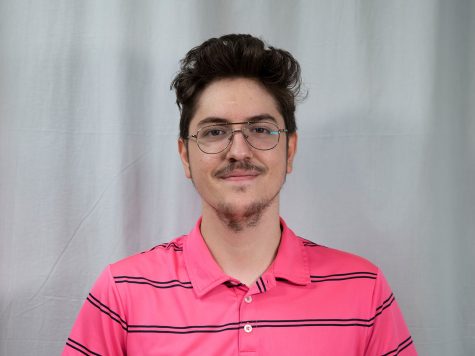Coronavirus has arrived in America, and America isn’t ready.
COVID-19, or the novel coronavirus, has canceled the remainder of NHL and NBA seasons, closed Disneyland and forced most major universities to offer online only instruction. California, North Carolina, Washington and other states have declared states of emergency. Large gatherings across the country have been canceled.
These four reasons outline why America is uniquely unequipped to deal with coronavirus.
School shutdowns will endanger the lives of children dependent on school lunch programs
The National School Lunch Program assists millions per year by supplying free or reduced-price lunches to 51% of American students, according to a 2015 Southern Education Foundation report.
In addition to potential lost lunches, 18% of American students are enrolled in some sort of after-school program, according to a 2014 Afterschool Alliance study.
If schools shut down en masse, parents who are unable to watch their kid all day, whether due to a job or schooling, will be forced to find alternative methods of care, which will further tighten the financial rope around their wrists.
Our labor force is financially unstable and dependent on retaining jobs, despite coronavirus risk
Service workers — typically underpaid and uninsured — are not guaranteed sick leave in every state.
Due to their proximity to customers and peers, service workers are especially vulnerable to coronavirus.
According to Aron Hall, of CDC’s Division of Viral Diseases, 1-in-5 food service workers have reported working at least once in the previous year while sick with vomiting or diarrhea, according to the CDC.
Imagine how easily coronavirus will spread in that kind of environment.
U.S. Representative Alexandria Ocasio-Cortez, who used to work in the food industry, expressed a similar sentiment.
“I can’t tell you how many times the people who handle your food – who are already overworked & underpaid – show up sick to work because our country refuses to guarantee healthcare or paid sick leave,” Ocasio-Cortez said in a Feb. 25 tweet.
The wage-labor-dependent must now weigh the options they have been unfairly forced to consider: prevent others from getting sick by forfeiting hours at the risk of losing their job, or continue to work and earn a wage at the risk of spreading the virus.
The wide majority of Americans lives in an urban setting, where disease can spread more easily
Despite making up only 3% of the United States’ land mass, around 84% of Americans live in urban areas, according to the Center for Sustainable Systems at University of Michigan.
The majority of the population lives in close proximity to one another, which will allow the virus to cut an effective path across the United States, infecting 70–150 million people, Dr. Brian Monahan, congressional physician, told Capitol Hill staffers in a closed-door meeting.
However, due to the reduced person-to-person contact, rural areas face less danger of rapid spread than do urban areas.
“If you live in a farming community some distance from an interstate or main highway, then I think your odds of coming into contact with, or actually becoming infected with COVID-19, are pretty slim,” said Leslie Marsh, CEO of Lexington Regional Health Center in Lexington, Nebraska, in an interview with The Daily Yonder.
In contrast to the more open roads and shops of small-town America, city goers face malls, public transit and city streets, all of which pose a risk of infection to the immunodeficient.
Can America’s infrastructure survive this temporary halt of life as we know it?
With no universal healthcare system in place, treatment and help will not be accessible to all
Nearly 20% of Americans are uninsured or underinsured, according to the National Center for Health Statistics.
President Trump has signed an $8.3 billion emergency spending bill to aid with coronavirus, of which $3.1 billion is going to the desk of Alex Azar of Health and Human Services.
Only $300 million of that $8.3 billion is going to develop and distribute vaccines, which HHS Secretary Azar has only promised will be “affordable,” not free.
The U.S. is the richest country in the history of the world. By not making a coronavirus vaccine free and available to all, including homeless, undocumented and working class residents, the U.S. has put a price on the life of every American, and not everyone can pay it.



